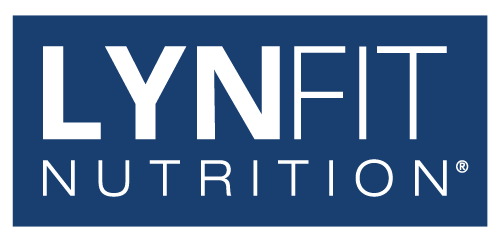
RECIPE: Lower Your Blood Sugar Pink Drink
Share
- (¾ cup) Cold water
- (1 scoop) LynFit Natural Whey Protein
- (1 scoop) LynFit Essential Amino Acids for maximum hydration)
- (½ cup) Strawberries or pink or red berries
- (5-6) Ice cubes for thickness (optional)
Add the above ingredients to the blender in the order they are listed, blend until combined and the desired thickness is reached, and enjoy!
Why is this Smoothie Good for Breast Cancer Patients?
Smart nutrition is crucial for everyone, but for cancer patients, survivors, and caretakers, it's more important than ever when it comes to recovery, energy, and prevention.
Nutrient intake is one of the few things we can control during treatment, which is helpful for our physical, mental, and psychological well-being—giving us something positive to focus on and allowing us to feel some control over our health and current situation.
Now more than ever, you must eat like your life depends on it. Food can help you sucker punch cancer cells if you fuel your body with the specific nutrients it needs in proper amounts to avoid interfering with treatments, providing natural energy and long-term health protection.
As a clinical nutritionist certified in oncology diets and physical therapy, I'm here to help you make the best, most informed decisions regarding protecting your health, recovering during treatments, and feeling energized.
The priority is to provide adequate clean, lean protein to prevent muscle loss, fatigue, and weakness. The essential amino acids that LynFit Natural Whey Protein contains are the perfect ratio, easier to digest than any other food, and won't interfere with treatment. We do not add any additional or undisclosed ingredients that typical whey protein powders add. It's pure, clean, lactose-free whey and prebiotic fiber to help heal and smooth your gut that can take a beating from cancer and its treatments.
Natural Whey makes nourishing your body with protein easy, convenient, and cost-effective. Below are a few protein guidelines for eating clean, lean, high-protein foods during cancer treatment.
Individual protein requirements will vary as each individual's body and circumstances are unique. For a rough guesstimate of calorie needs, plan on consuming 25-35 calories per kilogram of body weight (1 kilogram equals 2.3 pounds) and eat according to what you're going to do, meaning if you go to sleep, eat less. If you're going for treatment or being active, eat more.
As for protein, the current recommended daily allowance is 45-60 grams per day of lean, healthy protein. Your doctor can help you with your specific protein requirements.
Certain cancers can cause hypermetabolism, affecting your body's use of proteins, fats, and carbohydrates. Hypermetabolism requires you to increase your caloric and protein intake, especially if you're losing weight and muscle wasting. Discuss this with your care team.
What are the best lean and healthy high-protein foods?
- Natural Whey Protein or Vegan Protein Powder
- Salmon, turkey, chicken breast, thigh meat (if breasts are too lean), lamb, and limited red meat (red meat is not the healthiest for anyone, specifically cancer patients). Cooked fish is best; avoid sushi or uncooked seafood.
- Omega 3-rich eggs/egg whites if cholesterol or weight is elevated.
Dairy products and other forms of proteins (aka second best or inferior forms). Dairy is an incomplete form of protein and contains lactose sugar that can wreak havoc with digestion and blood sugar levels. If dairy doesn't bother you, one serving now and then can add a little variety to your healthy lifestyle. Ensure the bulk of your protein comes from the superior sources listed above.
- Milk, cheese, yogurt, and cottage cheese.
- Peanut butter must be combined with whole-grain bread or crackers to make it a complete protein source. Peanut butter contains more fat than protein and, for that reason, should be treated like that and consumed sparingly the same way you would limit butter or dessert unless extra calories are needed.
- Dried beans and peas are incomplete proteins; therefore, they must be consumed with bread, cornbread, or rice to make them a complete protein. The skins in beans and peas are tough on digestion and can cause gastric upset. If your stomach is not feeling great, you may want to avoid beans until your digestion works efficiently.
